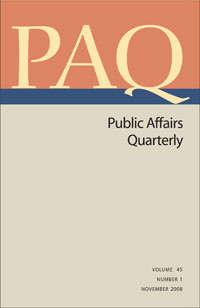Torture Warrants, Self-Defense, and Necessity
Fritz Allhoff, “Torture Warrants, Self-Defense, and Necessity”, Public Affairs Quarterly 25.3 (2011): 217-240. Reprinted (in slightly modified form) in Cardozo Law, Public Policy, and Ethics Journal 11.3 (2013): 421-447. Reprinted (in slightly modified form) in Search & Seizure Law Report (in press).
Abstract: This article explores a debate over the legal mechanisms by which interrogational torture could be sanctioned. Four separate proposals are considered, including: civil disobedience; torture warrants; self-defense; and necessity. Civil disobedience does not allow for legalized torture, but may allow for reduced punishments. Torture warrants contrast with self-defense and necessity in terms of offering ex ante, as opposed to ex post, authorization; arguments for and against either approach are considered. While there has been some legal scholarship in relation to torture warrants, less has been said about ex post justifications. This article ultimately defends the appropriateness of the necessity defense for torture, making both the moral and legal case for such a defense.

